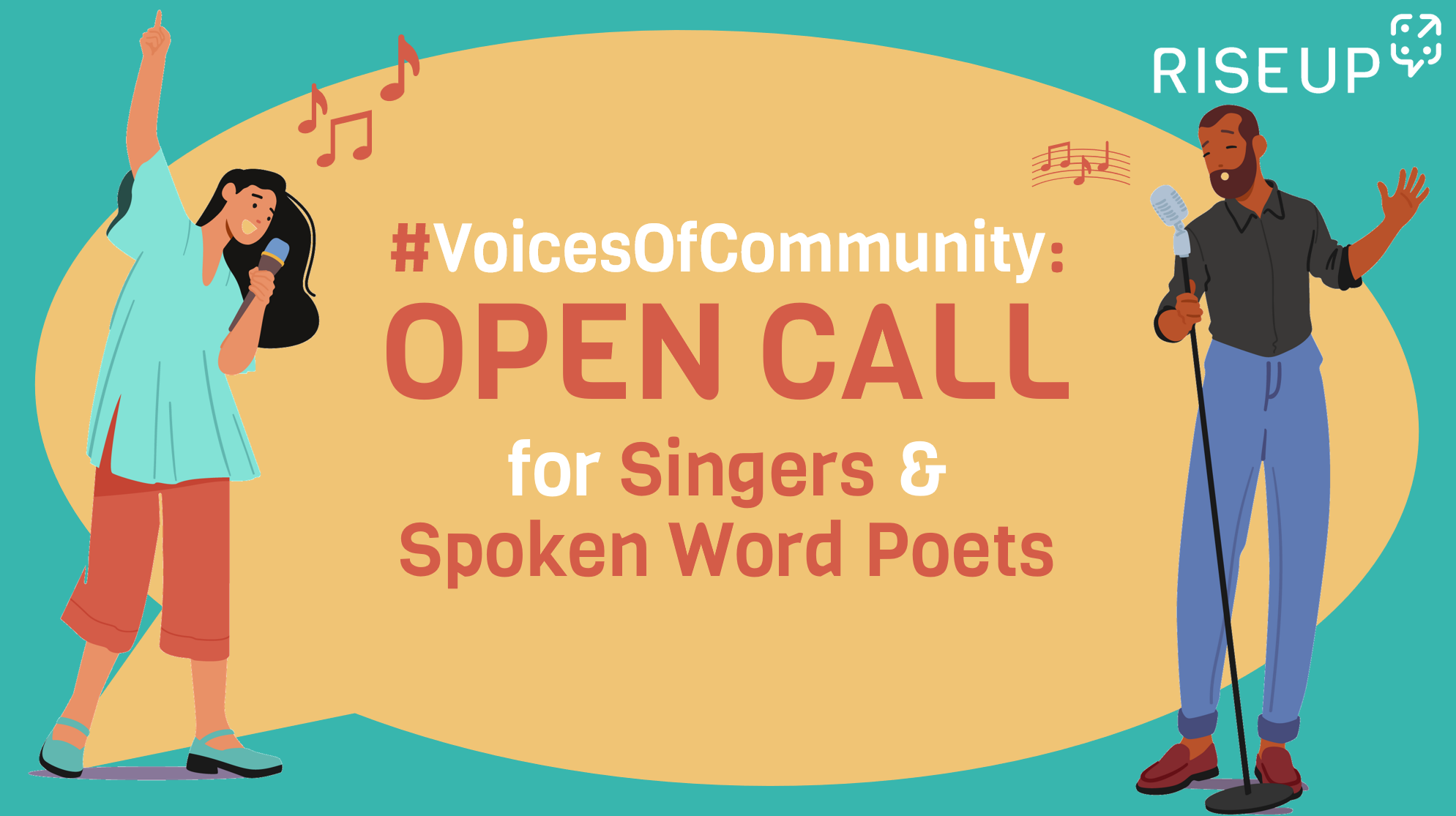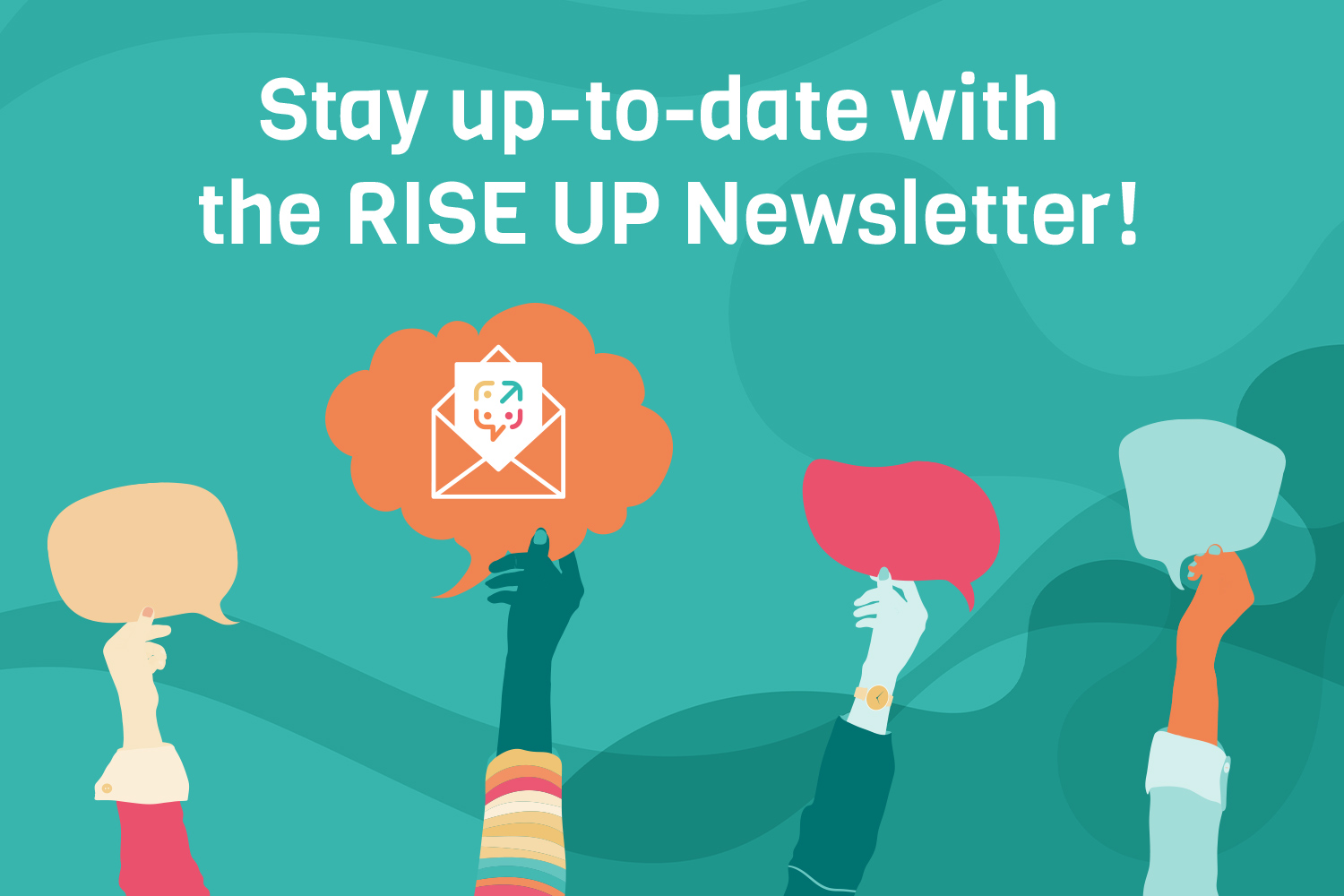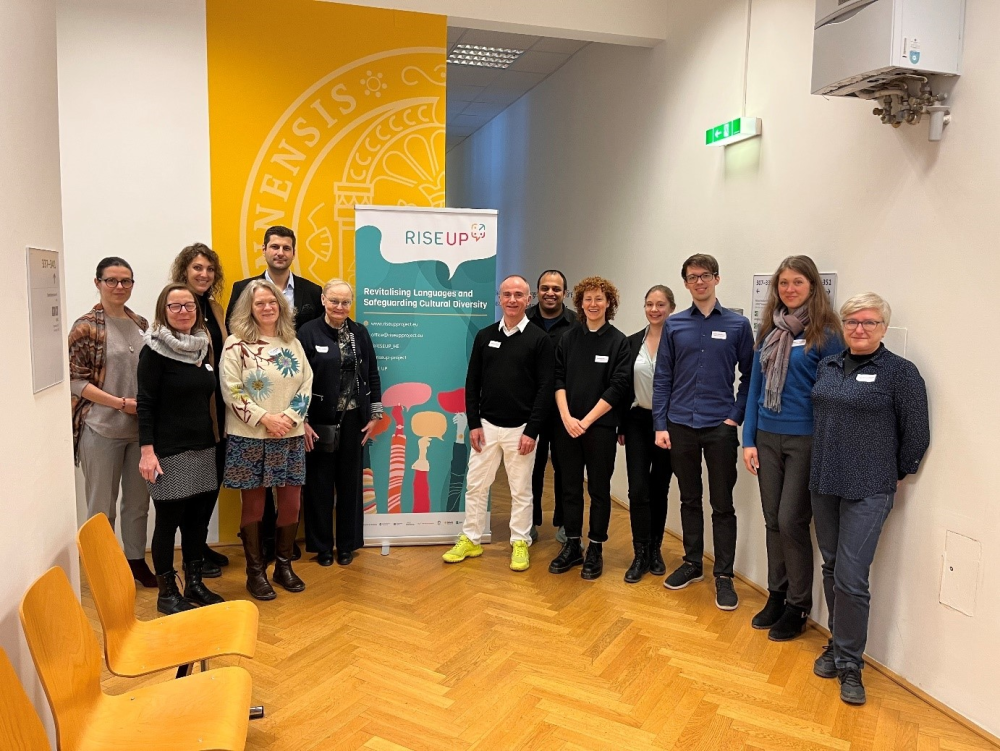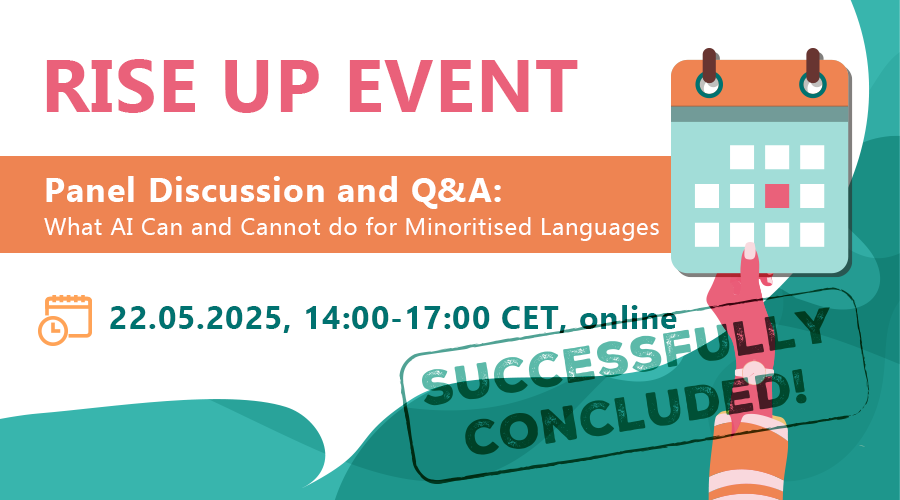
#4 RISE UP Event Summary: What AI Can and Cannot Do For Minoritised Languages
The fourth RISE UP Networking Event, a panel discussion and Q&A on the potential and limitations of Artificial Intelligence in the context of minoritised languages, took place on 22.05.2025. With a series of presentations from research and community stakeholders as well as a lively panel discussion, the event aimed to shed a light on work that has been conducted in the field, as well as the risks and challenges that can come with it.
What are the aims of the Networking Events?
RISE UP hosts regular online networking events on different topics in the field of minoritised languages, this being the fourth one. Our aim with these networking events is to provide participants with the opportunity to gain knowledge in the field of language activism, to give them tools to strengthen their language communities, learn from each other’s challenges and solutions, and build inter-community connections.
The presentations
The event was kicked off with four presentations on community and research initiatives in relation to AI and minoritised languages.
The first presenter was Iker Erdocia Iniguez who first presented the article “Language is not a data set – Why overcoming ideologies of dataism is more important than ever in the age of AI”. In the article, Iker Erdocia Iniguez and his co-authors argue that language is a social practice through which meaning emerges in context, which is why they call for ethnographic approaches as well as viewing AI and machine learning models as complex socio-technical assemblages, instead of treating meaning as stable and decodable the same way across contexts. Iker Erdocia Iniguez further talked about the FOSTERLANG Project, which is an EU-funded project aiming to safeguard and promote minoritised languages in Europe, as well as to have a transformative effect on how the linguistic and human capital of speakers of minoritised and migrant languages is recognised, valued and strengthened for the benefit of their communities and Europe as a whole. Within the project, the consortium further aims to implement Automatic Speech Recognition and Machine Translation tools for endangered and minoritised languages.
The second presentation was held by Paulo Cavalin, representing himself and Claudio Pinhanez. Paulo Cavalin talked about their work on “Harnessing the Power of Artificial Intelligence to Vitalize Endangered Indigenous Languages: Technologies and Experiences”, which included experiences on using AI to facilitate the documentation and foster the usage of Indigenous languages. He further shared insights into projects done in the past years with Indigenous communities in Brazil in the context of Indigenous Language Models.
After a brief Q&A session, the third presentation was held by Mélanie Jouitteau and Hiwa Asadpour. They talked about tools developed in the context of minoritsed languages, such as the Yezh Ar vRo mobile app that is currently being developed for the Breton context, which will be able to link sounds to geotags and thereby map recordings, enabling users to listen to tracks along a route. Furthermore, they presented the YAR Collaborative transcription platform, a platform aiming at participatory, effective transcription of minoritised language data. With the same mission in mind, a DFG project called CLaST (Collaborative Language preservation and Speech Technology) was initiated, which Hiwa Asadpour presented. The project’s aim was to bring such technologies to Western Asia and Diaspora communities of Kurdish, Armenian, Neo-Aramic, and other low-resource languages.
The fourth and last presentation was held by Aremu Anuoluwapo on the Esethu Framework. The Esethu Framework is a sustainable data curation framework designed to empower local communities and ensure equitable benefit-sharing from their linguistic resources, supported by the Esethu license, a novel community-centric data license. Aremu Anuoluwapo shared insights into challenges for (African) low resource languages, the subsequent exploitation gap, as well as potential solutions, such as their work in this field and the benefits that the Esethu license brings for communities.
Panel discussion
After the four presentations, the second part of the event was structured as a panel discussion. Next to the five presenters, five additional panellists were invited to share their insights into AI & minoritised languages:
- Siddhi Gupta (Inclusive AI Lab)
- Hannah Claus (“Now You are Speaking My Language: Why Minoritised LLMs Matter”)
- Fintan Mallory (“European Day of Languages: Will lesser spoken languages soon only be kept alive by AI technology”)
- Jeff Stanford (PhD on supporting volunteer minority language teachers through AI tools)
- Alexandru Jerpelea (AroTranslate.com)
The discussion touched upon questions such as to what extent AI tools can enable or facilitate language learning, whether and how minoritised language communities can benefit from LLMs/SLMs, or what challenges and limitations come with AI for minoritised languages. One important point that was emphasised continuously is that language cannot be reduced to form and data, but is a highly social, cognitive process. It therefore cannot exist in the absence of human speakers. Thus, AI should not be approached as a merely technical concept, but rather a sociotechnical one that needs to be developed in collaboration with and with explicit consent from the respective community.
If you missed the event and would like to get more detailed insights into the discussion, you can watch the recording on our YouTube channel:
https://www.youtube.com/watch?v=hbmnljaWeyk&t=1s
Conclusion
The three-hour event touched upon a lot of relevant perspectives on AI in the context of minoritised languages, that not only shed a light on the potential of AI for such communities, but also reflected critically on its implications and risks and concluded in a lively and insightful discussion. We would like to thank all presenters, panellist and participants for your eager engagement and sharing your viewpoints!
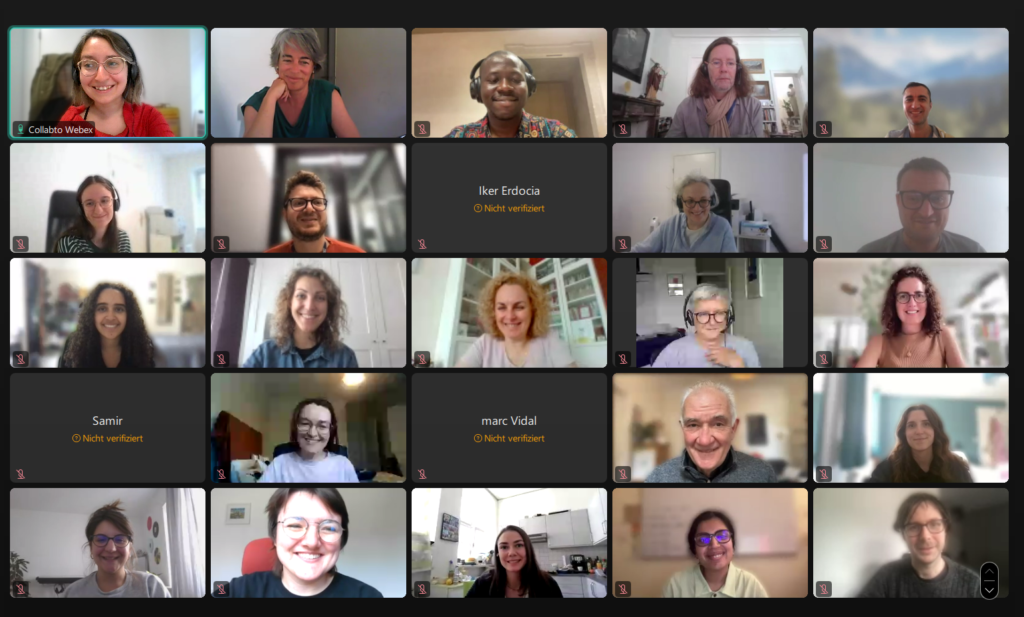
Contact the presenters
If you would like to get in touch with the presenters and panellists, you can find them here:
Iker Erdocia Iniguez: https://www.linkedin.com/in/iker-erdocia-76732399/
Paulo Cavalin: https://www.linkedin.com/in/paulocavalin/
Mélanie Jouitteau: https://www.linkedin.com/in/m%C3%A9lanie-jouitteau-11679721/
Hiwa Asadpour: https://www.linkedin.com/in/hiwa-asadpour/
Aremu Anuoluwapo: https://www.linkedin.com/in/aremu-adeola-jr-213055155/
Siddhi Gupta: https://www.linkedin.com/in/siddhi-gupta-ba9512181/
Hannah Claus: https://www.linkedin.com/in/hannah-claus-042382199/
Jeff Stanford: https://www.linkedin.com/in/jastanford/
Alexandru Jerpelea: https://www.linkedin.com/in/alexandru-iulius-jerpelea-5828b2181/
Fintan Mallory: https://fintanmallory.com/
Keywords
AI, Artificial Intelligence, minoritised languages, minoritised communities, language technology, panel discussion
